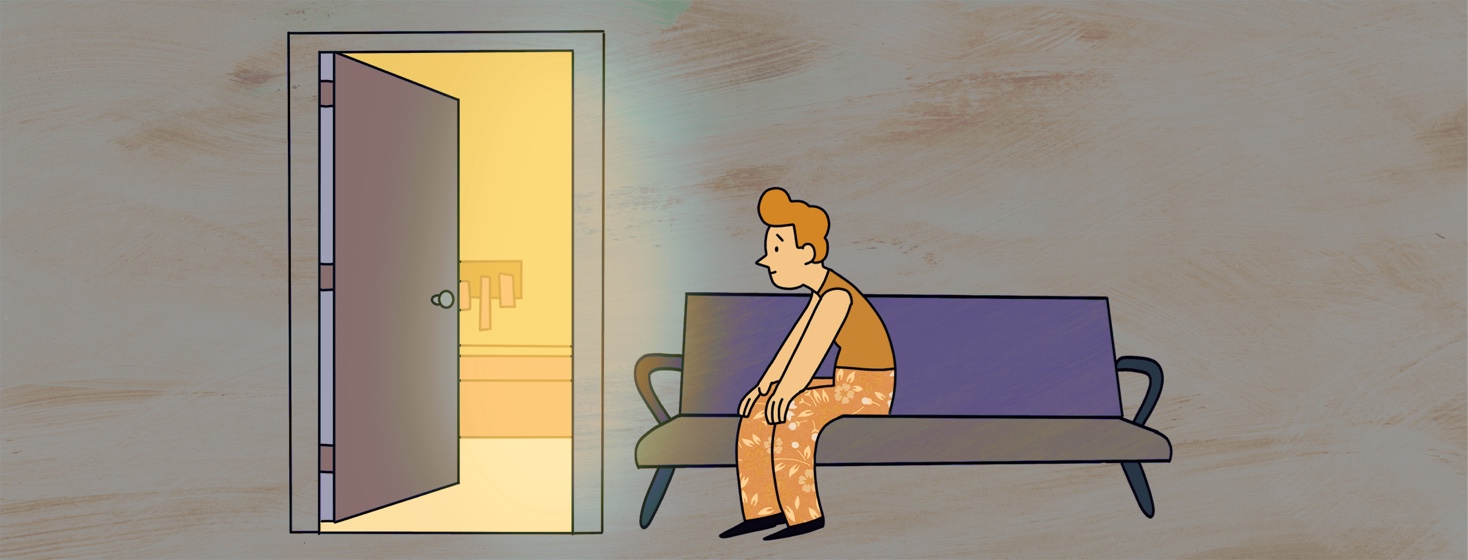My First Visit With an Endometriosis Specialist
Some of my right-sided pain started getting a lot worse about six years ago, especially with exercise. Sex started to hurt again, too. I was sure these issues were related to endo and could be treated. But with clear abdominal and pelvic ultrasounds, myriad doctors were less convinced.
My gastroenterologist told me to change my diet. Two physical therapists told me, at 38, I was too old to run. And the final nail in the coffin: my OB/GYN refused exploratory surgery. I had two options: hormone suppression or an IUD. I said no to both and thought I’d reached the end of the road with insurance-approved treatment.
That is until I met with a doctor trained in excision surgery, the gold standard for endo treatment.
Making the appointment
It's hard to find an endometriosis specialist. And before 2020, none of the excision doctors I’d read about online or through endo support groups were covered by my health insurance. But my network changes a little bit every year. So when my plan started over last summer, I checked two doctors near-ish to me (within an 8-hour drive) who were approved on the Nancy’s Nook Endometriosis Eduction Facebook page.
I reached out to the office of Dr. Patrick Yeung Jr., a surgeon with the SLUCare Center for Endometriosis. He's connected with St. Louis University, and his office is a 6-hour drive from my home in Madison, Wisconsin. But I didn't mind the distance. I’d interviewed Yeung a few years earlier — he does a lot of endometriosis research — and I knew we were on the same page. More importantly, I trusted he’d know more about my condition than I did.
The office scheduler let me know he didn’t have an opening until March 2021. But waiting seven months seemed worth it. After all, there was a pandemic going on. Plus, what’s half a year when I’d been looking for a specialist for almost two decades.
Before my appointment
They knew I was coming in from out of town — I got the impression they see a lot of endo travelers — so they booked three days of consecutive appointments. I’d have a consult, surgery, and a post-op checkup. They also asked me some questions, via email, right off the bat:
- What previous surgeries have you had?
- What stage of endo were you diagnosed with?
- Was there any bowel involvement?
- Did you have a chocolate cyst or endometrioma?
They asked for any color photos and surgery reports from my past surgeries. But my last procedure was in 2010. Those records were long gone, my ex-doctor's office told me. However, I told them everything I could remember and added that I’d been diagnosed with interstitial cystitis.
They also asked me to download and fill out a form before I came in. It was a 32-page questionnaire. Let me repeat that: 32 pages. I was stoked. These questions covered everything: bowel and bladder symptoms, types of pain, well-being, fertility, other health conditions, previous surgeries, family history of endo or adenomyosis, and a lot more that I can’t remember.
The pre-surgery consult
Dr. Yeung did give me a physical exam — pelvic and rectovaginal — to search for sources of pain. These give clues about what he should look for during surgery. But what struck me most was what he said in his office, before the exam:
Tell me your story.
I sort of laughed and asked, “All the way from the beginning?” I’d had endo pain for 25 years, I told him. Then I explained my symptoms, my roadblocks with previous doctors, and my goals for surgery: to have less pain with sex and to be able to go for a run without cramping. Less period pain would be a plus but not something I expected.
He listened for more than an hour. Then he explained everything he'd do during surgery and gave me all my options, particularly for my right-side pain: check the diaphragm, take the appendix out, remove the fallopian tube and ovary, if necessary.
I worried that he would miss something if I didn’t bring it up. But he assured me he’d treated thousands of people before. He wasn’t going to go “digging for endo,” but he knew when and where to look. He didn’t expect me to tell him where to find it.
And I left his office feeling something I hadn’t in years: hope.
Up next: How did my surgery and recovery go?

Join the conversation